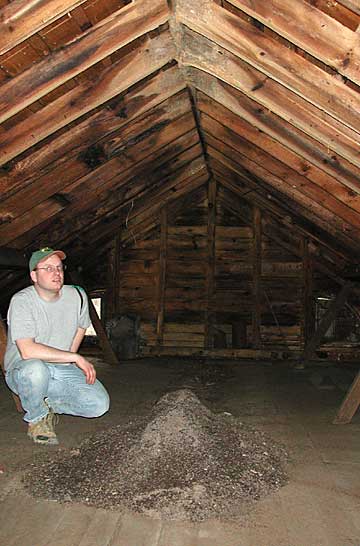For the past week, people in Kansas have been asking me, did you love the Canadian men’s Olympic hockey victory?
 I say, just glad it was a good game, great for hockey.
I say, just glad it was a good game, great for hockey.
And then I say, the women’s hockey team really rocked.
Most people look at me and say, women play hockey?
The Canadian women defeated the U.S. for Olympic gold, 2-0, and then showed the men how to party.
I coached girls’ hockey for a number of years while my kids were growing up. To coach little girls playing ice hockey in Canada requires 16 hours of training. To coach kids on a travel team requires an additional 24 hours of training.
It seems reasonable to have some minimal training for those who prepare food for public consumption.
Not so in North Dakota, where the State Health Department says it will not seek charges against a rural Washburn woman for operating an unlicensed catering business linked to sickening 180 people last summer.
Aggie Jennings catered three separate events in June — two wedding receptions and a family reunion — that resulted in 76 people seeking medical attention with 10 hospitalized for salmonella Montevideo food poisoning.
A subsequent report found a total of 180 people met the case definition for Salmonella Montevideo.
 The Bismark Tribune explains enforcement of regulations governing caterers falls under the jurisdiction of local health units.
The Bismark Tribune explains enforcement of regulations governing caterers falls under the jurisdiction of local health units.
Lisa Clute, executive officer for the First District Health Unit, said that board met Feb. 18 and voted not to recommend charges against Jennings, which would be Class B misdemeanors.
The strain of salmonella is one commonly associated with baby chickens, which Jennings raised on her rural residence.
The health department issued an order to Jennings to stop catering June 17, three days prior to the McClusky event, the report said.
The report also found there were four dishes that tested positive for salmonella and all had some type of preparation, storage or handling at Jennings’ residence.
It said several people assisting in food preparation at her home may have provided a source of cross contamination.
Clute said the First District Health Unit wants to be consistent in how it deals with such cases and in this instance, she thinks it has.
"We are confident she will never do this again. We stopped it quickly and efficiently and at this point there is no public health threat.”
These people wouldn’t be allowed to sit on the bench and open the door at a little girls’ hockey game. I don’t want them to make food either.
 Alex Kelsch says his mother died early Tuesday morning at a New Orleans hospital from a bacterial infection caused by eating raw oysters at a restaurant there. She was 58.
Alex Kelsch says his mother died early Tuesday morning at a New Orleans hospital from a bacterial infection caused by eating raw oysters at a restaurant there. She was 58.


 supply, storage and preparation will be examined to determine where the illness came from.
supply, storage and preparation will be examined to determine where the illness came from. I say, just glad it was a good game, great for hockey.
I say, just glad it was a good game, great for hockey. The Bismark Tribune explains
The Bismark Tribune explains The Bismarck Tribune reports
The Bismarck Tribune reports